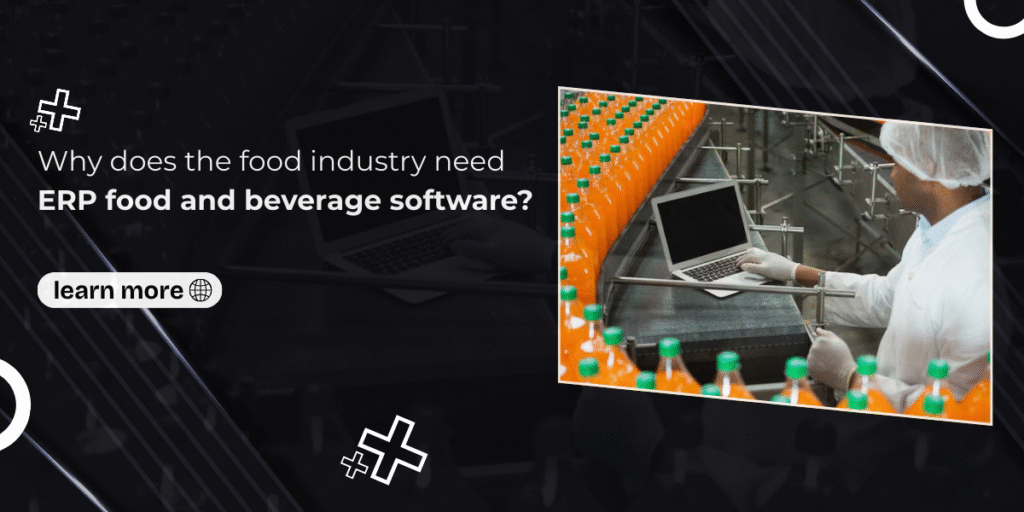
Why does the food industry need ERP food and beverage software
The food and beverage industry is said to be one of the most competitive industries in today’s business world. From managing food supply chains, ensuring food quality to fulfilling the ever-changing requirements of customers, the food and beverage industry faces a lot of unique challenges almost every day. In order to stay competitive, companies are taking the help of food and beverage software, a powerful tool for streamlining business operations, improving efficiency and enhancing decision-making. Here, in this blog, you will come to know why ERP food and beverage software is essential for today’s food industry and what are its key features. So, let’s discuss them in brief –
Why the food and beverage industry need ERP
We all know it well that the food and beverage industry works under some stringent regulatory protocols and all types of small, medium and large food chains have to stay compliant with these rules otherwise it may lead to significant loss and reputational damage. Let’s take a look at some of its common challenges-
- Strict compliance protocols: Food safety standards, labeling requirements and government guidelines should be followed at every stage
- Maintaining Inventory data: From managing raw materials to keeping a track record of finished goods, managing every data is tiring and time consuming work.
- Complex supply chain management: Businesses that operate globally often source ingredients from different parts of the globe, making vendor management and logistics supply more complicated
- Ever-changing customer preference: From sustainable packaging to organic products, businesses need to adapt themselves with continuous market demands
- ERP food and beverage software addresses these challenges efficiently by offering a centralized system which is accurate, easily accessible and actionable
Key features of ERP food and beverage software
ERP’s capacity to cover end-to-end procedures is its real strength. Among the most beneficial attributes are:
- Supply Chain and Inventory Management: Businesses may reduce waste and make sure that products reach the market before they expire by using the software to track raw materials and finished goods in real-time
- Management of Recipes and Formulas: Companies in the food and beverage industry depend on reliable product quality. ERP software enables accurate recipe formulation, cost tracking, and version control for new product development
- Compliance and Quality Assurance: ERP systems can monitor production processes to ensure adherence to food safety standards, reducing the risk of recalls and non-compliance penalties
- Production scheduling and planning: With forecasting tools, businesses can plan their production efficiently, avoid unnecessary stockouts and reduce the pressure of overproduction
- Traceability: ERP food and beverage software offers end-to-end traceability, from farm to fork. This is valuable during recalls as this helps in pointing out the affected batches instantly
- Reporting tools: The ERP software for food and beverage integrated financial analysis, payroll and accounting, offering businesses a complete view of operational cost and profitability
Trace the future of ERP in Food and Beverage Industry
With capabilities like cloud-based accessibility, machine learning, and artificial intelligence (AI), ERP systems are getting smarter as technology develops. Cloud ERP enables companies to access data at any time and from any location, while AI-powered ERP can more precisely forecast demand. ERP food and beverage software is developing to assist businesses in minimizing waste and lowering their carbon impact, and sustainability is also receiving more attention
Final conclusion
In order for businesses to remain competitive in the quickly changing food and beverage market, they must embrace technology. ERP software for food and beverage companies is a strategic solution that optimizes processes, guarantees compliance, and spurs expansion. It is more than just a management tool. ERP enables businesses to meet customer expectations, efficiently manage supply chains, and maintain profitability in a competitive market by combining all corporate operations into a single, integrated system. ERP software is now a need, not an option, for food and beverage companies trying to guarantee their future

